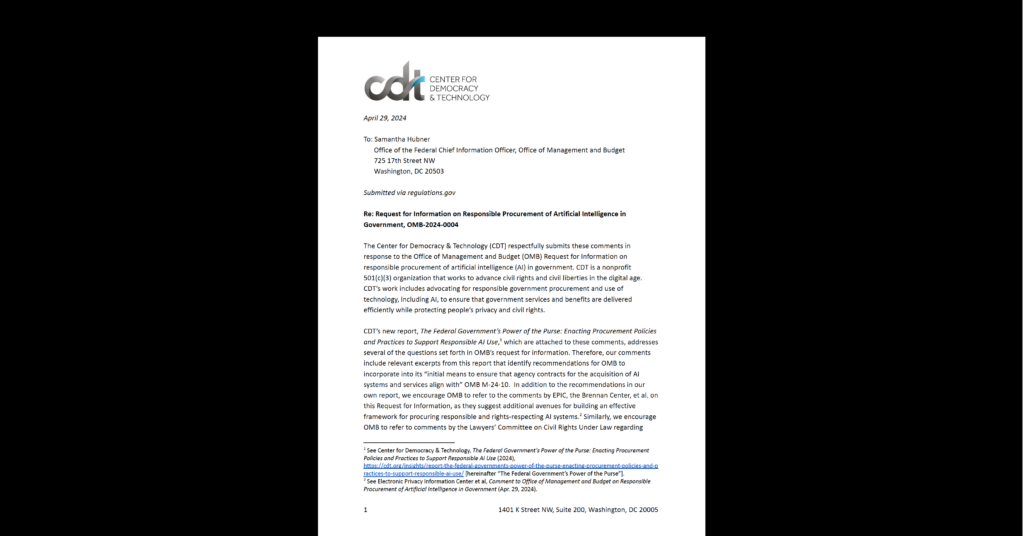Copyright Bill Advances, But Draws Plenty of Criticism
As expected, the Senate Judiciary Committee today approved a bill (S. 968) that would enlist a variety of parties – including credit card companies, online ad networks, search engines, and ISPs, among others – as copyright enforcers. CDT has expressed its concern with this approach, and particularly with the portions of the bill that try to use the domain name system (DNS) to control “rogue websites,” in previous blog posts and congressional testimony. The Committee today made a few modest but generally positive changes, such as improving transparency via annual oversight reports and tightening some language designed to prevent the bill from undermining the crucial copyright liability “safe harbor” under section 512 of the DMCA. But CDT’s core concerns remain.
While the Committee moves ahead, opposition voices have been mounting. Yesterday, CDT and a number of public interest groups sent a letter to Committee leadership warning of that the bill “runs contrary to the U.S. government’s commitment to advancing a single, global Internet” and “risks substantial collateral damage.” Prominent Internet and payment systems companies sent a letter opposing the bill’s new provision creating a private right of action, and several technology trade associations sent yet another letter warning that “portions of this legislation will undoubtedly inhibit innovation and economic growth.”
Perhaps most interesting, today a group of prominent, highly respected DNS experts released a paper discussing the technical and cybersecurity implications of the bill’s DNS provisions. The paper explains that “[m]andated DNS filtering would be minimally effective and would present technical challenges that could frustrate important security initiatives. Additionally, it would promote development of techniques and software that circumvent the use of DNS. These actions would threaten the DNS’s ability to provide universal naming, a primary source of the Internet’s value as a single, unified, global communications network.”
We hope that lawmakers will take note. Today’s Committee approval is certainly not the end of the process; indeed, Senator Ron Wyden has pledged to hold up the bill unless significant changes are made. As we’ve said many times now, nobody disputes the goal of fighting websites that exist for the sole purpose of enabling infringement. But it doesn’t follow that any and every anti-infringement enforcement tool is worth embracing. Some carry costs to other important interests – costs which may substantially outweigh their purported benefits.


